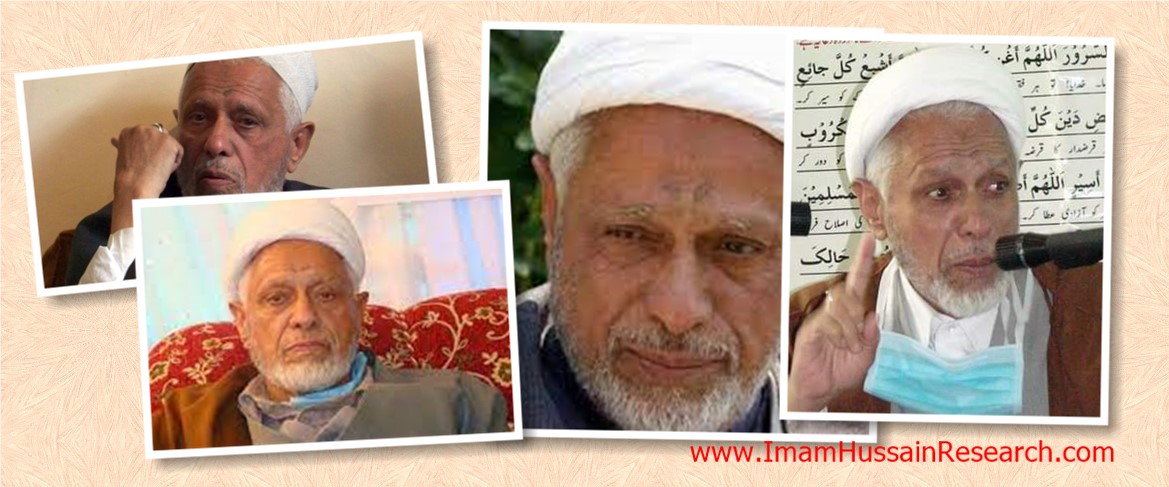Mohammad Abbas Ansari (Urdu: محمد عباس انصاری) was a political leader and a well known Scholar, reformer, preacher and cleric. He was known for his religious lectures and as founder & chairman of the Ittihadul Muslimeen also known as Jammu & Kashmir Ittihadul Muslimeen (JKIM) an organization which aims to Shi’a–Sunni unity in Kashmir.
Mohammad Abbas Ansari: A Legacy of Religious Scholarship and Political Leadership
Early Life and Education
Mohammad Abbas Ansari was born on 18 August 1936, in Srinagar, into the influential Ansari family. His family was deeply rooted in both religious and political spheres, which significantly shaped his upbringing and future endeavors. Ansari received his preliminary education at a local school in Srinagar, laying the foundation for his lifelong commitment to learning and service.
After completing his initial studies, he graduated from the Oriental College in Srinagar, where he developed a strong interest in Islamic theology and jurisprudence. Recognizing the importance of furthering his education, Ansari traveled to Lucknow, a renowned center for Islamic theological education in India. There, he enrolled in Sultanul Madaris, one of the most prestigious Islamic institutions, where he delved deep into Islamic studies.
Advanced Studies in Najaf
Ansari’s quest for knowledge led him to Najaf, Iraq, a prominent hub for Shia Islamic scholarship. In Najaf, he majored in Arabic literature, philosophy, hadith (the sayings and actions of the Prophet Muhammad), tafseer (Quranic exegesis), Islamic jurisprudence, and political science. His eight years of rigorous study in Najaf were instrumental in shaping his scholarly and theological perspectives. The diverse and rich educational experience he gained in Najaf equipped him with a profound understanding of Islamic teachings and jurisprudence, which he later applied to his religious and political work in Kashmir.
Return to Kashmir and Founding of Safeena
Upon returning to Kashmir, Mohammad Abbas Ansari launched a religio-political monthly magazine named “Safeena.” The magazine aimed to address and discuss the pressing issues faced by the Muslim community in Kashmir, providing a platform for intellectual and theological discourse. Through Safeena, Ansari disseminated his views on Islamic jurisprudence, political theory, and social reform, fostering a greater understanding among the local populace.
Founding of Ittihadul Muslimeen
In his commitment to promoting unity and understanding within the Muslim community, Ansari founded the Jammu & Kashmir Ittihadul Muslimeen (JKIM). The organization was established with the goal of fostering Shia-Sunni unity in Kashmir, addressing sectarian divides, and promoting a cohesive and harmonious Muslim community. As the founder and chairman of JKIM, Ansari played a pivotal role in advocating for religious tolerance and unity, striving to bridge the gaps between different sects within Islam.
Political Leadership
Mohammad Abbas Ansari’s influence extended beyond religious scholarship into the political arena. He was a prominent political leader who used his platform to advocate for the rights and welfare of the Kashmiri people. His political career was marked by a dedication to justice, equality, and the upliftment of the oppressed. He navigated the complex political landscape of Kashmir with a vision of peace and unity, making significant contributions to the socio-political discourse of the region.
Later Years and Retirement
In 2010, Mohammad Abbas Ansari retired from active political life to devote himself entirely to spiritual pursuits. His decision to step back from politics allowed him to focus on his religious teachings and personal spiritual growth. Despite his retirement, his influence and legacy continued to resonate within the community, inspiring many to follow his path of scholarship and service.
Death and Legacy
Mohammad Abbas Ansari passed away on 25 October 2022, after a prolonged illness at his residence in the Khankhai Subah area of Nawakadal in central Kashmir’s Srinagar city. His passing marked the end of an era of significant religious and political influence in Kashmir. The funeral was held after Zuhr prayers, and his body was laid to rest at his ancestral graveyard in Babamazaar Zadibal. His death was mourned by many, reflecting the deep impact he had on the lives of those he served and inspired.
Mohammad Abbas Ansari’s life was a testament to the power of knowledge, unity, and service. As a scholar, reformer, preacher, cleric, and political leader, he dedicated his life to the betterment of his community and the promotion of Islamic values. His legacy continues to inspire future generations of scholars and leaders in Kashmir and beyond, embodying the principles of justice, unity, and compassion.

